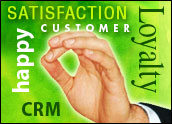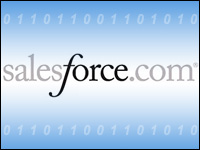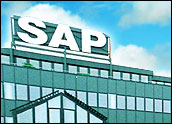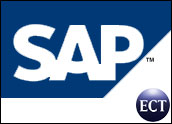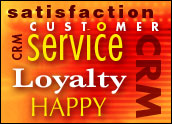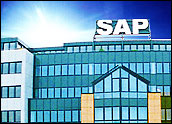
In the first installment of this two-part article, analysts and CRM vendors weighed in on whether a company should purchase an in-house CRM system or outsource the project by choosing a hosted service provider.
For quick ROI, speedy implementation and off-site IT resources, hosted systems are more advisable, experts concluded. However, companies interested in a long-term approach, a slow build-out or extensive customization were advised to invest in an in-house system.
Still, even with these factors taken into account, the decision is not clear-cut. More questions remain for a CIO or IT manager who is trying to decide which CRM path his or her company should take. Those questions include matters of security, employee distribution, hidden costs and blended solutions.
1. What are your security requirements?
For some companies, the decision to keep work in-house or farm it out is no decision at all, but rather a foregone conclusion. Anand Subramaniam, vice president of marketing at eGain, told CRM Buyer that even if a firm sees compelling reasons to outsource, security standards may prevent it from doing so.
“In some sectors, like financial services, it’s dictated that all work be done in-house,” he said. “Also, companies like that tend to have a team of security experts, so they should be close to the processes and software.”
He noted that hosted CRM providers do have strict security in place, but it is often generic security designed to lock down client data in a uniform way. A more elaborate or customized security setup is better implemented within a company’s walls, rather than at a vendor hosting site.
2. Where are your employees?
In creating a CRM plan, the physical location of a company’s employees also can be important as a determinant of strategy.
Dan Starr, chief marketing officer of CRM provider Salesnet, told CRM Buyer that a company with a widely distributed workforce may find a hosted system makes it much easier to bring employees together on the same application.
“If you’re all in one building, it’s pretty straightforward,” he said. “You can even visit each employee’s computer and manage CRM that way.” However,with sales departments in London, Bangalore and Sydney, taking a casual stroll down the hallway from the IT department is not feasible.
“The hosted model is actually built with distributed employees in mind,” Starr noted. “The management of it, as well as certain functions and analytics, are all created to make it easier for a CIO to work with far-flung offices.”
3. How many pieces are there in your CRM configuration?
Complex integration is another factor to consider in the CRM decision. A company may choose hosting because only two or three departments or business processes need to be addressed by the application.
When more departments are added to the mix, however, hosting begins to lose its appeal. Subramaniam noted that the presence of many business units interested in CRM could be a sign that a company should keep its software close at hand.
“If different parts of the software need to interact with each other often,” he said, “it’s usually more efficient and leads to something with better performance if it’s housed in one place.”
4. Have you examined the additional costs of each strategy?
Additionally, when doing a cost analysis of whether to choose a hosted or in-house CRM system, it is important to jot down how much each vendor says its approach will cost — then find out what the real cost will be.
Aberdeen Group vice president Denis Pombriant told CRM Buyer that many vendors charge additional fees after the initial purchase that should be considered in any such decision.
“Vendors have a way of throwing software or training into the deal,” he said. “If you have those already, they throw in marketing.”
When dealing with in-house CRM vendors, he noted, a company should watch for software add-ons or training time for staff members that may not have been anticipated.
With hosted CRM vendors, companies should be aware of potential hidden costs in infrastructure and resource estimates. “They might tell you that you’re going to need a certain amount of server capacity,” Pombriant said, “and you might think you can get by on less.”
5. Is it possible that you don’t have to choose one over the other?
As companies attempt to decide whether in-house or hosted CRM is the best option, some firms are deciding they would rather not choose at all. Instead, they are implementing blended solutions that utilize both approaches.
Subramaniam noted that this blended approach is beginning to gain popularity among eGain’s clients because it does not involve a radical switch in strategy for most companies. For example, a corporation might decide to install in-house CRM software but outsource call-center functions.
Similarly, a company may roll out a component of its CRM in-house that requires complex customization while outsourcing more straightforward components to a hosted vendor.
“We’re seeing this growing in the mid-market especially,” Subramaniam said. “It makes a great deal of sense for some companies. If it works for your company to outsource some functions and keep some in-house, why wouldn’t you do it?”

